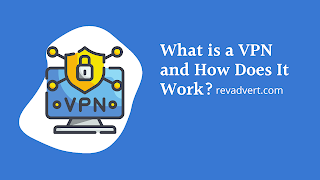A VPN Explained: What It Is, Why You Need It, and How to Choose the Best One for Your Needs |
Why You Need a VPN
If you want to dive into the best VPN for you, you’re going to have to understand the reasons behind why a VPN is valuable.
If you use the Internet for a number of reasons, your security is going to take a big hit if your Internet connection is not secure. Unfortunately, many of the biggest websites and online services are not as secure as they should be. Depending on your location, your computer may not be running as safely as it could be. There are plenty of ways you can protect yourself online and ensure that your Internet connection is secure, but perhaps the most important is to use a Virtual Private Network (VPN) to connect to the Internet securely. These services are available for a variety of different reasons, but when used properly, a VPN can go a long way toward keeping your Internet connection safe.
- Why A VPN is the Best Solution for You
The best VPN for you is the one you choose to use. The one that fits your needs the best.
- Why the Best VPN
The best VPNs are going to be better than the rest for a number of reasons. They’re also going to be more affordable than the rest.
- How to Choose the Best VPN for You
There are some general guidelines to help you with your VPN choices. Your goal should be to use a VPN that offers a good price and a stable service.
- Choosing the Best VPN for You
It’s easy to use the VPN discovery tool to determine if a particular VPN is the best VPN for you.
The VPN Industry
A virtual private network, or VPN, creates an encrypted tunnel between your computer and a server operated by the VPN company. When you connect to the VPN, the company uses a second server to decrypt the data you’re sending across the open internet, and your computer keeps your data hidden from its usual routing systems, which can expose it to IP address audits and hackers.
While anyone can buy a VPN service to gain internet access, VPN services with client software actually exist to protect you from data monitoring, digital harassment, and government spying, among other threats.
While a VPN doesn’t block content, some services do contain ads and trackers that users might want to disable, or don’t offer a full selection of services, depending on your preference.
There are two primary types of VPNs: local (to one device) and offsite (to many devices). Both are useful, but some are better than others for different purposes.
The local VPN is the simplest and most common, but it’s a security risk. Any VPN server that your computer connects to is potentially vulnerable to attackers. In 2016, five Indonesian officials told me that their email accounts were hacked when they connected to a local VPN. If an attacker can crack the internet protocol, they can get into any VPN connection, and this has happened to even the most secure VPNs.
Think about this: If an attacker can crack your phone, they can easily crack every other connection you make, too, including your computer and the VPN server you’re using.
What is a VPN and How Does It Work?
A Virtual Private Network, or VPN, is a simple network management tool that lets users route their traffic through a private network they control. This means it stops anyone on the public network, such as the internet, from seeing what you’re doing, even if you’re logging onto an open Wi-Fi network at a local coffee shop.
This makes it very useful for protecting your privacy when you use public Wi-Fi networks since it allows you to create a secure tunnel through which your traffic is passed, ensuring your internet activity is hidden from prying eyes.
Do you know what a VPN is? You’re probably thinking, “Where on earth have you been for the past 15 years?” VPN stands for Virtual Private Network. It’s a way to safely and securely encrypt your data when you use the internet. It also means you can hide your location online while also blocking web ads.
VPN services are easy to use but can be confusing to some people. But don’t let that stop you. It’s worth it to spend a little bit of time learning about what a VPN is so that you can get the most out of it.
Compare Different Types of VPNs
A VPN Explained: What It Is, Why You Need It, and How to Choose the Best One for Your Needs
Online safety is a topic that’s very important to us here at How-To Geek. With every month bringing new information about hacking, malware, and how to protect ourselves from it, we wanted to provide a quick rundown on how to get started with using a VPN and why you should be using one.
While there are certainly other great ways to ensure you’re completely protected from potential security risks, a VPN is definitely one of the best ways to get that extra layer of protection. This piece covers what a VPN is, how it helps protect you from online threats, what features you should look for in a VPN, and also how to get started with using a VPN.
Choose the Best VPN for Your Needs
With virtual private networks, you can create a virtual “tunnel” through which your internet traffic goes. You can do this so that your internet traffic, as it travels through the VPN, gets encrypted, hiding your true IP address. That means that websites that track you by your IP address are more likely to show you ads targeted at you, which means you’re more likely to click on the ads. Also, by using a VPN, your internet access will not be as likely to be blocked by your internet service provider.
A VPN service provider will usually offer a free or inexpensive virtual private network service. That means you get your own VPN, but you can also connect to someone else’s if you’d like.
It’s important to choose a VPN provider with a strong privacy policy.
Sceptre $40.02 MSRP $33.99 View on Amazon
Your PC has a ton of computers running on it, and some of them want to get in as many things as possible. For example, you might run a WordPress blog, a cloud-storage service, or even a digital photo uploader. These people might all be outside your network, and it’s better to have some idea of what they’re doing so you can warn them against malware, spam, and such. When you’re browsing the web or doing any kind of sensitive action, it’s generally best to keep things off the public internet. That includes cloud services and any company servers, such as Twitter or Google, which might not provide you with adequate encryption.
VPNs all do one thing, but how they do it differs. A router, for example, might route your internet through a VPN.





0 Comments